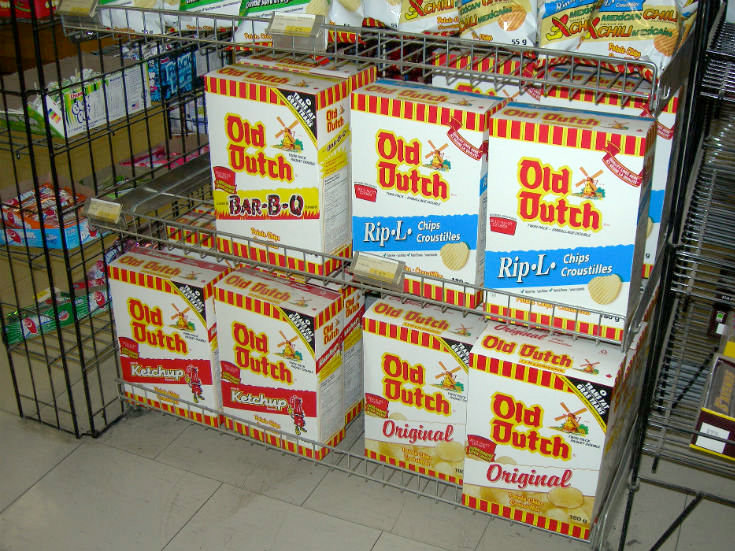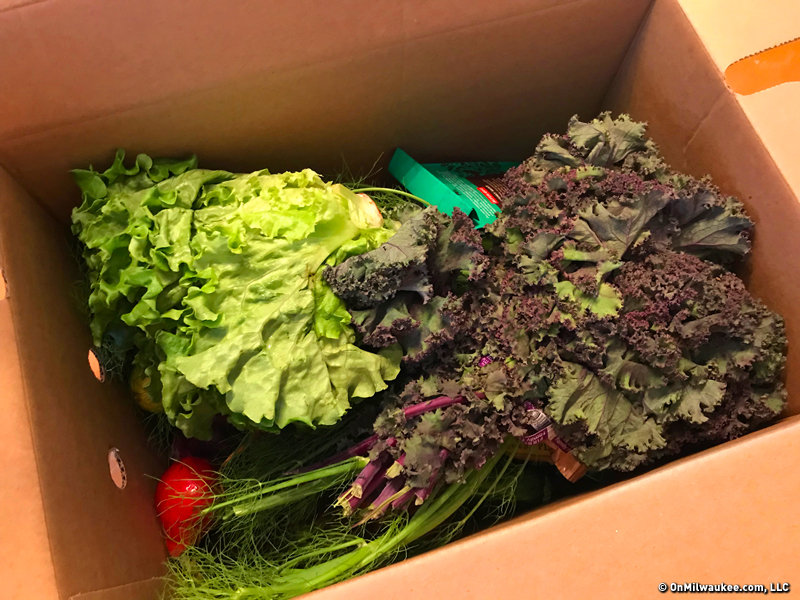Grocery shopping in Wisconsin was pretty different a generation ago, ignoring the whole "exchanging money for food" similarity. The trip probably happened in a much smaller store. Carts lacked the convenience of a hot beverage holder. Organic was a twinkle in the produce section’s eye. Bulk candy vessels were less sanitary.
The chip aisle has gone through its own shifts. The varieties – from plantain chips to pasta chips – have expanded greatly, as have the flavors. Gone are the days of the only four chip flavors being plain, barbecue, sour cream and onion, and plain with ridges.
The expansion of varieties hasn’t coincided with an expansion of suppliers. In fact, more grocery store products are coming from fewer and larger companies. For example, Lay’s owns over 60 percent of the salty snack market share, according to a recent Forbes report.
Casualties of this trend included some of southeastern Wisconsin’s favorite potato chip companies. Yes, Wisconsin had several local producers for several decades. This made the area unique; few regions outside of Ohio and Pennsylvania have had multiple established regional brands.
A look back at chip brands from a generation ago reveals some extinct local brands, as well as some midwestern stalwarts that have gone through their own changes.
The Geiser potato chip company was founded in 1933 by Frank and August Geiser. The brand was a stalwart in the Milwaukee area with its "Be Wiser, Buy Geiser’s" slogan and cartoon icons (Old Faithful the geyser and a bear carelessly hanging onto balloons). For a time, Geiser also sponsored a formidable junior bowling team. A 1948 Journal Sentinel article mentions the Geiser team finishing sixth in the Wisconsin Bowling Association tournament.
In 1984, the Borden food company bought Geiser’s. The parent of Elsie the Cow gobbled up several regional chip brands around this time, including Pennsylvania’s Wise (in fact, Wise Cheese Doodles were available locally in the early 1990s). In the early '90s, Borden stopped snacking on chip companies. Geiser’s was bought by the Japp family, owner of Jay’s potato chips. The Geiser’s factory on West Burleigh street dwindled down production soon after, and the brand slowly went away. All that remains are some collector’s items featuring the bear and the geyser.
The family-run Mrs. Howe’s food products had several decades on Milwaukee chips shelves. Anyone that desired the license plate "CHIPS" was out of luck, as company president Charles Howe had the fortune of driving a car with that plate. Along with chips, the company made popcorn and ice cream cones. They disappeared soon after being purchased by the Heileman baking company in 1984. The Heileman name may be more recognizable as the maker of another Wisconsin product: Old Style beer.
Going back even farther, one of the largest Wisconsin brands became part of the company that now dominates the chip aisle. Red Dot potato chips were a Madison-based brand in the middle of the 20th century. At one point, Red Dot was the third largest potato chip producer in the US, with sales of $11 million at their highest.
Lay’s bought Red Dot the 1960s. Red Dot’s size and breadth at the time of the acquisition – they owned three factories across the Great Lakes and atlantic states – likely contributed to the Texas-based Lay’s trajectory toward being the largest national brand. Red Dot’s mascot, Ta-to the clown, sadly didn’t get the call-up to be the Lay’s mascot.
Although many of the Badger State brands have disappeared, several midwestern brands still grace their presence in today’s stores. Barrel O’ Fun was a Minnesota-based chipmaker that has been a Wisconsin staple despite through some recent ownership changes. They’re now owned by Ohio’s Shearer’s foods.
Another Minnesota company, Roseville-based Old Dutch, has been around since the mid-1930s. Old Dutch offers one of the most expansive flavor selections of any chip (nobody else produces a Chicken Artichoke Flatbread potato chip). Their appearance in Kwik Trip stores make them one of the few regional brands that can be found in gas stations across Wisconsin.
What makes Old Dutch noteworthy is a form of packaging that ties them to last generation’s brands. It is something found only in the Midwest. It is glorious, sturdy and picnic-appropriate. It is the twin pack box: two artless, airtight bags tucked into a cardboard box. So at least one relic remains from shopping a generation ago.







